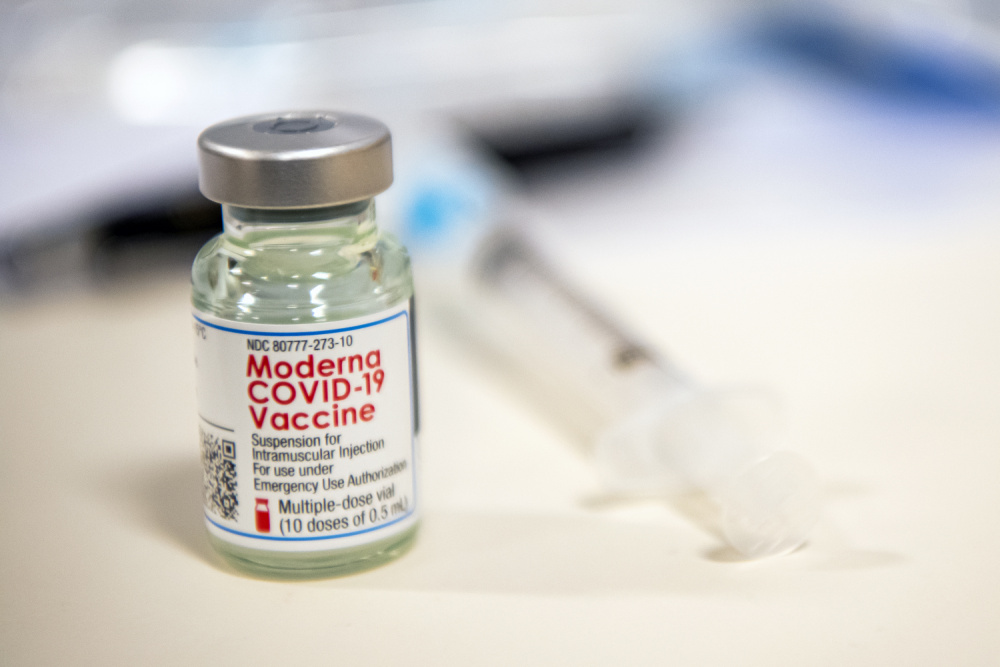In a carefully controlled clinical trial, Michigan Medicine researchers will examine whether participants who are highly allergic or have a mast cell disorder possess a greater risk for a reaction to the Pfizer-BioNTech and Moderna COVID-19 mRNA vaccines.
The study, co-led by a University of Michigan immunologist and funded by the National Institutes of Health, will will analyze data from 3,400 subjects, including more than 100 at U-M, receiving one of the two mRNA-based vaccines at up to 35 academic allergy research centers across the United States. Staff will collect blood and urine samples from participants before and after injections.
They will look for immediate, systemic reactions to the vaccines. Such reactions occur in one or more parts of the body – not just at the injection site. If they occur, researchers will assess whether the reactions are more frequent in volunteers who are highly allergic or have a mast cell disorder, a disease caused by an abnormal or overly active white blood cell that predisposes a person to life-threatening reactions that look like allergic reactions.
“When these vaccines initially became available, there were a number of reports about allergic reactions, but it wasn’t at all clear if they were true allergic reactions,” says James Baker Jr., M.D., director of the Mary H. Weiser Food Allergy Center and national co-chair of the vaccination trial. “The safety of these vaccines is otherwise remarkably good. So, if we can figure this out, it really facilitates the use of these technologies for vaccines going forward.”
The phase 2 placebo-controlled trial will focus on adults between 18 and 69 years old. Around 60 percent of them will have a history of severe allergic reactions or diagnosis of a mast cell disorder. The remaining participants will have no history of allergic reaction.
“We’re searching for the molecular markers of allergic reactions, so that we can see whether or not there is a smoking gun there,” Baker says. “The symptoms are highly variable. In fact, it can be difficult to differentiate some of them from fainting spells.”

The group will be split into thirds; one will receive the Pfizer vaccine, the next will get Moderna and the other will receive a placebo. The placebo participants will subsequently get one of the two vaccines, so every participant will eventually receive both doses of either vaccine.
“It’s important to study people who have many severe allergies and may have even been told because they have allergies they shouldn’t get vaccines,” Baker says. “In the study, we can give them the vaccine safely in a controlled environment.”
Staff administering the shots are allergists trained to recognize, and respond to, severe allergic reactions within seconds. They will observe all study participants for at least 90 minutes after the injections. Researchers will follow up with volunteers throughout the trial.
Implications
Millions of Americans are already immunized with Pfizer and Moderna vaccines, and the federal government purchased an additional 100 million doses from the two companies in February to meet rising demand.
However, many people are hesitant to get the vaccine or fear a bad reaction. This study, Baker says, will allow researchers to test for specific molecules that the body typically produces in an allergic reaction.
“If we find those markers, that tells us it’s an allergic reaction and sends us in one direction,” he says. “If we don’t, if we find markers of nonspecific inflammation, it may suggest this is simply a reaction people are having to activation of their immune system. That has different implications from an allergy.”
A substantial number of the people enrolled in the study, called Systemic Allergic Reactions to SARS-CoV-2 Vaccination, will have previously experienced anaphylaxis, a sometimes-fatal allergic reaction. Baker says the trial won’t just help physicians do a better job of identifying the few people who should not get this type of vaccine – it may change the way they address future diseases.
“We’re learning about these reactions to help battle COVID, but this technology will be used to develop new flu vaccines and, likely, vaccines for most respiratory diseases,” he says. “These formulations are truly going to transform the vaccine industry.”
Any adult interested in participating in the trial at Michigan Medicine should visit https://michmed.org/lAxgj. Others can visit ClinicalTrials.gov and use the identifier NCT04761822 to find specific locations and contacts.


